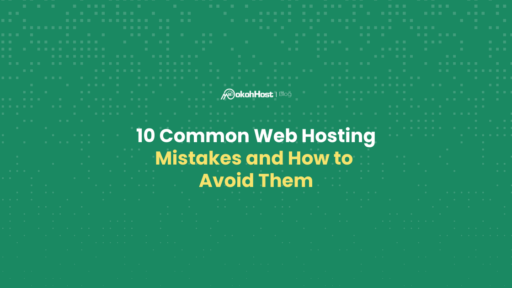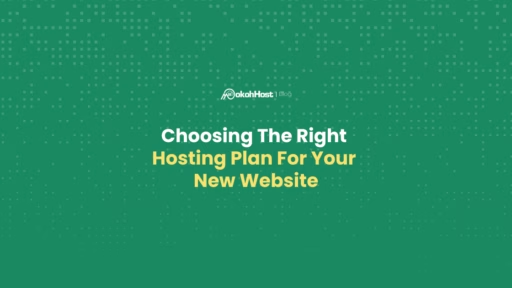Website Security Practices are crucial for keeping your site secure. The proper steps to take often depend on the tools and systems you’re using behind the scenes. Website security practices are not just a technical requirement; they’re a core pillar of business credibility and customer trust.
Securing your website is vital to protecting your business from cyberattacks, data breaches, and unexpected downtime. By adopting robust security measures, you help ensure your site stays safe, dependable, and earns users’ trust.
In this guide, we’ll walk you through 10 essential website security best practices every business should follow to strengthen their online defenses.
What is Website Security
Website security refers to the practice of protecting websites, web applications, and the data they handle from a broad range of online threats. It’s a critical component in maintaining your online presence, safeguarding user trust, and preserving your brand’s reputation.
Website security encompasses all strategies and technologies used to defend against unauthorized access, cyberattacks, and malicious activities. These protective measures are crucial in preventing a variety of threats, from hackers attempting to breach systems to malware that silently corrupts data.
Whether you manage a small blog or a multinational platform, prioritizing web security is not just smart, it’s essential.
You Might Find This Helpful
Top 5 Website Builders for Nigerian Enterpreneurs in 2025
Best Practices for Increasing Website Security
No business is immune to website security threats. As cyberattacks become more advanced, faster, and more aggressive, the question is no longer if your website will be targeted but when.
An unprotected website is exposed to a wide range of risks that can compromise organizational integrity and jeopardize user privacy and data security.
To help mitigate these risks, here are some of the most effective website security practices every business should implement today.
Use Strong Password Policies and Advanced Login Security Measures
The importance of adopting effective password management solutions cannot be overstated. While passwords are the most basic line of defense for website security, they also pose one of the highest risks when not managed properly. Studies have shown that 25% of passwords can be cracked in under three seconds, an alarming statistic that should prompt every website owner to take password security seriously.
Creating secure passwords that combine letters, numbers, and special characters can be challenging. This is where password managers, such as 1Password, become essential. These tools help generate strong, unique passwords and store them safely, removing the burden of memorization while enhancing your overall security posture.
Regularly updating passwords is a critical measure, especially for site administrators, to reduce the likelihood of passwords being compromised. Just as important is using strong, complex passwords that are difficult to guess but still easy to remember.
Perform Regular Software and Plugin Updates
Keeping your website platform, plugins, and any third-party software up to date is essential for maintaining strong security. Outdated software often contains known vulnerabilities, which are among the most common entry points for cyber attackers.
Your website relies on various software components such as your Content Management System (CMS), plugins, and server infrastructure, all of which require regular updates. These updates are not just about adding new features; they are crucial for safeguarding your site against emerging security threats.
To begin with, security patches released in software updates address loopholes that malicious actors could otherwise exploit. In an environment where cyber threats evolve rapidly, running outdated software significantly increases your risk exposure. Moreover, updates often come with performance improvements that help your site run more efficiently. They also ensure compatibility with the latest technologies and devices, which is vital for maintaining a seamless user experience.
Use SSL Certificates to Secure Your Website
Adding an SSL (Secure Sockets Layer) certificate is a key step in protecting data shared on your website. SSL creates an encrypted connection between your site and its users’ browsers. This encryption keeps sensitive information private and secure during transfer. It also lowers the risk of data being intercepted or altered by cybercriminals. With SSL, your website is better protected from a wide range of online threats.
An SSL certificate is essential for securing personal information such as credit and debit card details, login credentials, and any other sensitive data shared through your website. By encrypting this information, SSL ensures it is virtually unreadable to unauthorized parties. Moreover, enabling SSL boosts user confidence by signaling that your website is secure.
Enable HTTPS for Website Security
Using the HTTPS protocol should be a standard practice for all website owners. It ensures secure communication between the server and client, establishing a baseline of trust and protection. When enabled, HTTPS ensures that users’ data, whether being requested or viewed, is safe from interception or alteration by unauthorized parties.
In contrast, websites lacking HTTPS are often flagged by browsers like Google Chrome as “Not Secure,” which can negatively impact engagement. Many users are unwilling to interact with a site marked as unsafe, which can reduce your site’s credibility.
Additionally, HTTPS helps safeguard your website’s backend code. Without this layer of protection, attackers can inject or alter the code to monitor and collect sensitive user information such as credit card details, passwords, and personal data.
Most importantly, HTTPS contributes to improved SEO performance. Search engines reward secure websites with higher rankings in search results, helping you reach more users while maintaining a safe and trustworthy online presence.
Choose a secure and dependable hosting provider.
Many hosting providers offer built-in server security features designed to protect your website’s data better. However, it’s essential to evaluate specific criteria when choosing a host. Choosing the right hosting provider is crucial in maintaining a secure and trustworthy website. You should prioritize providers that place a strong emphasis on security, offering comprehensive features like network firewalls, SSL certificates, and DDoS protection to defend against a wide range of cyber threats.
A trustworthy host should also provide responsive customer support to guide you through any potential security issues. Other helpful features include regular data backups and real-time monitoring for unusual activity. Staging environments allow safe testing before updates go live. A Content Delivery Network (CDN) also improves both security and reliability. Together, these features create a safer and more stable hosting experience.
MokohHost provides robust hosting solutions tailored for security-conscious businesses. With features like automatic backups, free SSL, and proactive threat detection, MokohHost makes it easier for website owners to stay protected without compromising performance.
Regularly create backups of your data.
Website Security Practices are essential for preventing data loss, which can have serious consequences, whether caused by hardware failure, cyberattacks, or accidental deletion. Research shows that 60% of small businesses that experience data loss shut down within six months. To safeguard your information and minimize downtime, it’s crucial to back up your data regularly. Consistent backups ensure your data remains secure and can be quickly restored when needed.
To protect your data effectively, it’s essential to follow some best practices. First, automate your backups so they occur regularly without manual effort. This helps eliminate the risk of forgetting. Next, store backups in multiple locations, such as an external hard drive, cloud storage, or an off-site server, to ensure redundancy in case one of the sources fails.
Encrypt your backups to keep sensitive data safe. Even if the data is stolen, it can’t be read without the correct decryption key. Also, test your backups regularly to ensure they are complete and working. This helps you recover faster if something goes wrong.
Finally, maintain a consistent backup schedule, whether daily, weekly, or monthly, based on the sensitivity and volume of your data.
Monitor your systems continuously for potential threats.
Website owners often struggle to detect malware and viruses because they are hidden and hard to trace. This makes malware one of the most common and dangerous threats to website security.
However, with consistent and continuous monitoring, businesses can spot suspicious activities that may signal malware or other threats.
For instance, unauthorized login attempts, unexpected modifications or deletions of website files, frequent website crashes, changes in search engine results such as warnings about harmful content or blacklisting, and sudden fluctuations in website traffic are all signs that a website may be infected.
Automated scanners continuously monitor a website while allowing it to operate normally, thereby eliminating the high costs associated with manual monitoring. Furthermore, these tools can detect abnormal behavior and take corrective actions as needed.
Perform regular security evaluations and vulnerability assessments.
One of the most effective ways to keep your site secure is by conducting regular security audits and vulnerability assessments. These practices are vital for maintaining a strong defense against potential threats. Regular audits help you uncover vulnerabilities in your website’s infrastructure before malicious actors have a chance to exploit them.
Fixing security vulnerabilities helps lower the chances of data breaches that could expose sensitive information and damage your business’s reputation. Many industries have specific security standards that must be followed. Regular audits ensure compliance with these regulations, helping you avoid fines and legal issues. Additionally, showing your commitment to security strengthens customer confidence, reassuring them that their data is safe with you.
Ensure all user input is validated
Validating user input is crucial for protecting against attacks such as SQL injection. An SQL injection occurs when a hacker inserts malicious SQL code into a website input field. For example, a hacker could target your website’s sign-up form by skipping the name field and inserting malicious code instead. This code can trick your website into revealing sensitive data from your database, potentially exposing information.
Incorporate an Activity Monitoring Tool for Enhanced Security
Website owners often struggle to detect malware and viruses because these threats are designed to hide and remain elusive. This is one reason why malware is considered one of the most common and dangerous risks to website security.
However, with continuous monitoring, businesses can enhance website security by identifying activities that may suggest the presence of malware or other harmful programs. Monitoring all site activity provides several advantages. It allows you to track user actions, making it easier to identify who did what and when. This oversight is vital for ensuring accountability and can help you address issues promptly.
Website Security Practices should always include an activity monitoring tool as a key component. It helps you detect unusual or suspicious behavior, like unauthorized access or unexpected changes. These signs may indicate a potential security breach. By catching them early, you can act quickly to reduce damage and improve your site’s defenses.
Conclusion
Securing your website should be a top priority for any online business.
By following these 10 essential security practices, you can protect your site from threats and build trust with your visitors. Choosing a reliable host like MokohHost adds another layer of protection. They offer SSL certificates, malware scanning, automated backups, and 24/7 support to help keep your website safe around the clock.
